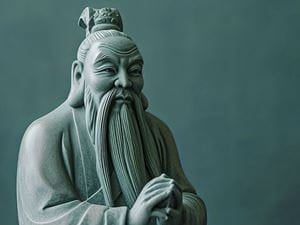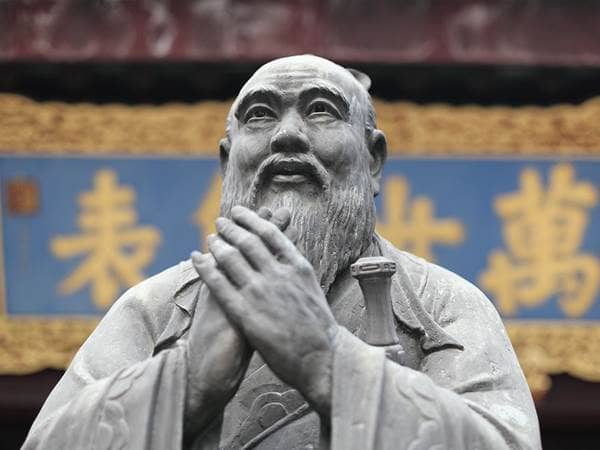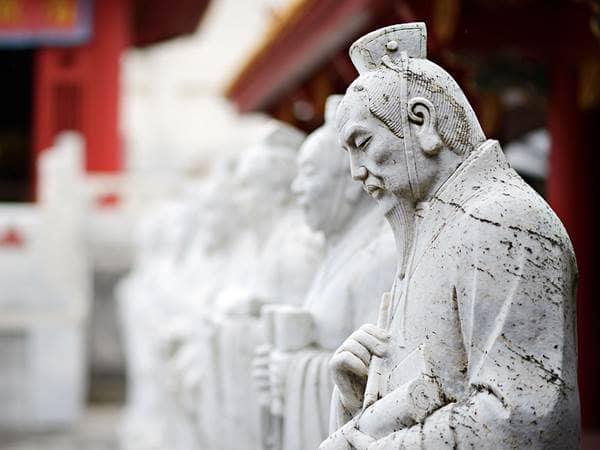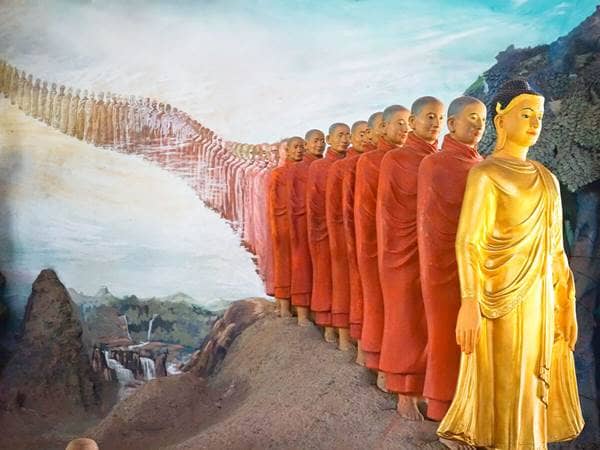
Scholarly sources suggest that that the founder of Confucianism (551-479 BCE)—anciently referred to as “K’ung Fu-tzu” or “Master Kong”—was born in China in the fifth century BCE. Though technically born into what we might call an “aristocratic family” (his father being a military hero and then governor over a region in China); Confucious had a rather rough childhood. His father died when K’ung Fu-tzu was only three years old. Because he was born to the concubine of his father, Confucius and his mother were seen as a drain on the family’s strained resources and, consequently, they were banished by his father’s two surviving wives and their children. As a result, Confucius was raised in poverty.
Tradition says that, by the age of fifteen, he knew that he wanted to become a scholar. In his twenties, he began teaching. He was quite charismatic (in spite of being inordinately tall and, according to tradition, rather unattractive). He developed a large following in an era when “education” was something you got and the knee of your mother or father. Many believe that Confucious may have been the first “professional” teacher—convincing thousands to give him some form of pay to convey to them his philosophy about life and the wisdom he could impart.
Technically, Confucius saw himself as a “transmitter of traditions” which already existed in his day, rather than as the “inventor” of the truths he propagated. Indeed, Confucious and his closest disciples venerated the teachings and person of various sages who predated them by hundreds of years. Those sages included the Emperors Yau and Shun (who are said to have lived in the 3rd millennium BCE); the rulers of the Zhou Dynasty (circa 1050-256 BCE); the Kings of Zhou, Wen (d. 1056 BCE) and Wu (d. circa 1043 BCE); and Duke Huan of Zhou (711-694 BCE). Confucious had access to teachings attributed to these ancient sages, and he taught and expanded upon those ideas—creating a philosophy, ethic, and even view of education that remains largely unmatched in the modern world.
What Confucious founded was not a “formal” religion. Rather, the Confucianism we are familiar with today is the outgrowth of the slow evolution of Master Kong’s teachings; an evolution which took place well after his death. Essentially, his many disciples took the things he taught them, and those diffused throughout China, slowly permeating various already existing social structures (such as the government, family life, and even other religions). From China, it eventually made its way to Vietnam, Korea, and Japan, where it became heavily influential.
Part of what facilitated Confucianism’s diffusion into these other parts of the world was the spread of Chinese governmental practices, along with China’s familial, philosophical, linguistic, and artistic structures. Because Confucianism so heavily impacted each of these elements of Chinese culture, when that country’s influence spread, so did Confucianism—into and throughout most of East Asian society. Thus, today, Confucianism is largely inseparable from (and even synonymous) with East Asian culture.
Another component which has facilitated the wide-spread nature of Confucianism has to do with its ritual observances. Because Confucious didn’t emphasize belief in God but stressed more the importance of moral or ethical living, its rites are largely about human relations—rather than the relationship between people and their God. As odd as that may sound, many of these rites (associated with marriage, death, puberty, etc.) have existed for some 2,000 years. In an era when belief in God seems to be dying, Confucian rites have remained strong and influential because, while some may lose their need for a God, humans always need human relationship. Thus, the focus of these rites and even Confucian teachings have remained germane (and kept Confucianism relevant) even in a post-religious world.
5/10/2024 4:31:05 PM

















